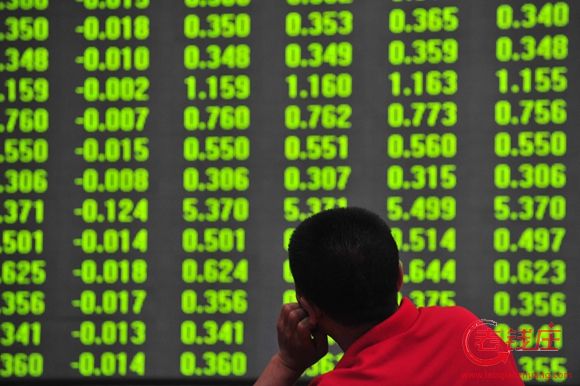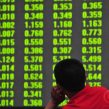
Stock Market Crash Reveals Serious Flaws in the Xi Administration’s Economic Policies
Publication: China Brief Volume: 15 Issue: 14
By:

The recent Chinese stock market crisis has exposed the fallacy of the Chinese Communist Party’s (CCP) contention that it is possible to seek economic development and reform without commensurate political changes. That the authorities have to use a barrage of executive fiats–including deploying the police to investigate what Beijing calls “malicious” brokers and fund managers–to save the day has underscored the limited tools available to China’s top leadership. Beijing’s abandonment of market-oriented mechanisms has cast a shadow over the future of financial and related reforms. Moreover, China’s 90 million stocks buyers have expressed their lack of confidence in the regime by disobeying Beijing’s orders to prop up the faltering market.
For three weeks beginning in mid-June, some $13.5 trillion yuan was wiped out of the Shanghai and Shenzhen stock exchanges as panicking investors stampeded to sell their shares. While the turmoil was estimated to have cost the country’s wealthy elite some $200 billion, the real burden fell on ordinary gumin (“investors”)–including low-income workers, hawkers, farmers, and housewives. These smaller investors are estimated to have each lost an estimated 420,000 yuan each, a tremendous amount as measured against their total wealth (Guangzhou Daily [Guangzhou], July 4). Social backlash has already begun. Cases of suicides and violence, such as a man in the central city of Nanchang who killed his wife because the latter had run up stocks-related debts of 1.8 million yuan–could translate into a groundswell of discontent toward CCP-style governance (Ming Pao [Hong Kong], July 10; Henan.China.com, July 3). While a modicum of market confidence was restored by July 9, it is possible that the China stock market could witness more roller-coaster rides in the foreseeable future. While it is true that the Shanghai Index rose by 5.2 points in the week ending July 10, the smaller Shenzhen Market recorded a drop of 1.7 percent in the same period, with its high-tech second board (also known as the “Chinese Nasdaq”) having nosedived by 9.6 percent (Ming Pao, July 10).
Hostile Economic Forces?
The CCP leadership has blamed short-sellers–including foreign and Hong Kong institutional investors–for the crisis. On July 9, the State Council asked Deputy Minister of State Security Meng Qingfeng, a colleague of President Xi’s when the latter was Party Secretary of Zhejiang, to head a task force charged with investigating “malicious short-selling” by an undisclosed number of brokers and fund managers (Ta Kung Pao [Hong Kong] July 12; Xinhua, July 9). Yet it seems clear that fault for the overheated markets is largely due to the party-state apparatus itself. Earlier this year, senior cadres and party mouthpieces began giving super-optimistic projections of stock prices. An April 21 commentary in the People’s Daily, for example, declared that the “bull market has just started.” Other commentaries have waxed eloquent on the fact that “the stock market is the anchor of ‘the Chinese Dream’,”–President Xi’s favorite mantra. Many investors, quite logically, believed that the markets could only go up. After all, Chinese stock exchanges have always been “policy-driven markets” (政策推动市场) due to frequent interference by the party-state apparatus (China Economy Net, July 13; People’s Daily, April 21; Phoenix TV, March 28).
Behind the editorials and predictions was policy: President Xi and Premier Li, the latter–a reform-oriented official whose motto is “let the market do what it does best”–apparently wanted to pump liquidity into the economy. They proposed to do this by persuading Chinese to dig into their 130 trillion yuan worth of savings and invest in the market. The reason is simple. Despite the fact that the People’s Bank of China (PBOC) had repeatedly lowered interest rates as well as banks’ reserves requirement ratios (RRR), the economy remains tepid, thus jeopardizing Beijing’s goal of a 7% GDP growth rate this year. Moreover, state-owned enterprises, many of which are heavily in debt, have benefited from a spike in their share prices. According to Bank of America Merrill Lynch, major shareholders of corporations (including senior executives) sold 360 billion yuan of stocks in the first five months of 2015, compared to 190 billion yuan in all of 2014. Peking University economics professor and former banker Fan Di noted that “SOEs are the biggest beneficiary of the stock market.” “Other parties which have taken profits include the government, brokerages, and finance professionals,” he added. Fan estimated that 90 percent of gumin had never earned money from the markets (Reuters, July 10; Eastmoney.com [Shanghai], February 25). The casino-like atmosphere of the stock market was exacerbated by the fact that the PBOC and China Securities Regulatory Commission (CSRC) allowed margin borrowing by investors to facilitate their shares-buying spree earlier this year (Caixin [Beijing], June 29; China Daily, May 7).
Measures to generate bullish sentiments, however, pale beside the slew of extraordinary government edicts geared toward reining in the stampede in late June and early July. On June 28, in a rare move, the PBOC simultaneously lowered the interest rate and reduced bank RRR (PBOC, June 28). Soon afterwards, Beijing indefinitely postponed a rash of new IPOs and ordered government-controlled pension funds to buy heaps of stocks and shares. On July 4, the State Council summoned the CEOs of the nation’s largest brokerages to an emergency meeting in Beijing, during which the latter was told “to buy and never to sell” (Xinhua, July 4; Sohu.com) Beijing also set up a $42 million contingency fund to help brokers resuscitate the market. This was followed by the CSRC’s instructions on July 7 that institutions and individuals who owned five percent or more of a company should refrain from selling for six months. Two days later, half of the 2,800 companies listed on the Shanghai and Shenzhen exchanges suspended trading, resulting in a virtual shutdown of the stock market (Reuters, July 10; Ming Pao, July 5; China Economy News, June 30).
After the sell-off was temporarily halted, the party mouthpiece Global Times praised the “national team”–a reference to the Xi-Li leadership–for taking resolute and effective measures to tackle the financial mayhem. However, foreign and Chinese officials fear that the return of massive state fiats and other types of interventions in the market could signal a sustained roll-back of reforms. Referring to Beijing’s repeated interference in the market, United States Treasury Secretary Jack Lew noted: “I hope that this is not something that slows down the pace of reform…If the reaction is to put the brakes on reforms, that will slow that process” (Reuters, July 8; VOA, July 8). Hu Xindou, a professor at the Beijing University of Technology and a vocal government critic, urged the government to minimize state fiats and to speed up reforms in the financial and securities sector:
“The government can only solve the problems relating to the stock market through reform. Reforms include stricter restrictions on IPOs, more transparency in disclosure of information, stricter punishments of rogue companies, and the improvement of corporate governance” (Hu Xindou Blog, July 9).
Stock Market Reforms With Chinese Characteristics
Since coming to power in late 2012, Xi has reiterated the imperative of upholding “the ideology, institutions and road of socialism with Chinese characteristics.” The conservative party chief has also banned classroom discussion of topics including international norms, Western democratic ideas, freedom of expression and independence of the judiciary (Apple Daily [Hong Kong] May 9, 2014; People’s Daily, May 31, 2013). Yet as former Premier Wen Jiabao repeatedly warned, economic reform cannot succeed in the absence of political liberalization (China.com.cn, March 14, 2012; Jinghua Times [Nanjing], October 12, 2010). The financial turmoil has illustrated how President Xi’s art of governance–concentrating all decision-making powers at the apex of the party and implementing policies via traditional diktat–is going into a cul-de-sac.
The stock bubble also reflects the fall-out of the CCP’s 26-year freeze on political liberalization. In the absence of the kind of checks and balances that can only be brought about by political reform, Xi’s vaunted top-level design (顶层设置) of the economy could result in disaster. While in many Asian countries, the media acts as a counter-balance to state power by pinpointing inadequacy of policy, the CCP has imposed a tight censorship on both print and electronic platforms. Despite Xi’s rhetorical commitment to legal reforms, the draconian way in which the central government has used banks and brokerages to defuse a crisis apparently of its own making has demonstrated its utter disdain for due process. The lack of oversight or regulatory legislation means that neither China’s rubberstamp parliament, the National People’s Congress, nor the judiciary are in a position to rein in the excesses of the party-state apparatus (Inmediahk.com [Hong Kong], July 10). Throughout the stock market crash, not a single member of the NPC or the Chinese People’s Political Consultative Conference–China’s highest advisory body–so much as made a comment on how to defuse the crisis. This is despite Xi’s reiterations that his administration will strictly abide by the rule of law (Xinhua, March 29, 2014). Moreover, contrary to its “serve the people” credo, the CCP leadership has attached top priority to enriching the “red aristocracy,” the major beneficiary of the markets’ bull-run. As overseas-based Chinese politics expert He Qinglian has argued, the Chinese stock market is a “tiger machine that gobbles up the assets of the lower classes.” Not a single party or government unit has in the wake of the turmoil made any promise about overhauling operations in the two bourses (Radio Free Asia, July 6).
The Xi leadership seems to have ruled out parliamentary democracy or any shift from a single-party authoritarian state forever. The lack of a strong rebound in prices despite strong efforts by the government to shore up positive sentiments indicates that ordinary stock investors have lost confidence in the “policy-driven markets.” The stock market has thus become an indirect platform for gumin to demonstrate their disapproval of the efficacy of the party-state apparatus. There seems little evidence that investors who have lost big are planning anti-government protests or other destabilizing actions. Yet senior officials including CSRC Chairman Xiao Gang have been pilloried in social media daily for their failure to reform the stock markets. Gumin have also shown their disapproval with the Xi leadership by refusing to heed state orders to produce a rebound in the market (Apple Daily, July 8; Hong Kong Economic Times, July 7).
Taxing the Poor
Moreover, the Xi administration’s handling of the stock market has highlighted one of the most serious problems in China: the increasingly serious gap between haves and have-nots. A couple of mainland media have suggested that gumin on average lost as much as 410,000 yuan–the equivalent of eight years of salaries for a worker–in the 20 days prior to July 3 (Eastmoney.com, July 5; Qianjiang Daily [Hangzhou], July 4). Influential economist Mao Yushi wrote in his blog last week that the overly speculative stock market has become a casino, where the powerful–including those who have inside information about government policies as well as a sturdy credit line from banks–prey on the weak. “A casino does not create wealth,” he concludes, “It only concentrates more wealth in the hands of the minority.” (Qq.com, July 10). If the CCP administration is seen as cynically manipulating the stock market for purposes including meeting GDP growth targets and further benefiting SOEs and well-connected business people, the long-term impact of this crisis could be devastating. A big dent has already been made in ordinary folks’ faith in “socialism with Chinese characteristics.” Failure by the Xi-Li leadership to come up with thorough-going measures to restore fairness and integrity to the stock market could provoke a ferocious demand for political reform that the CCP has consistently denied its constituents.




